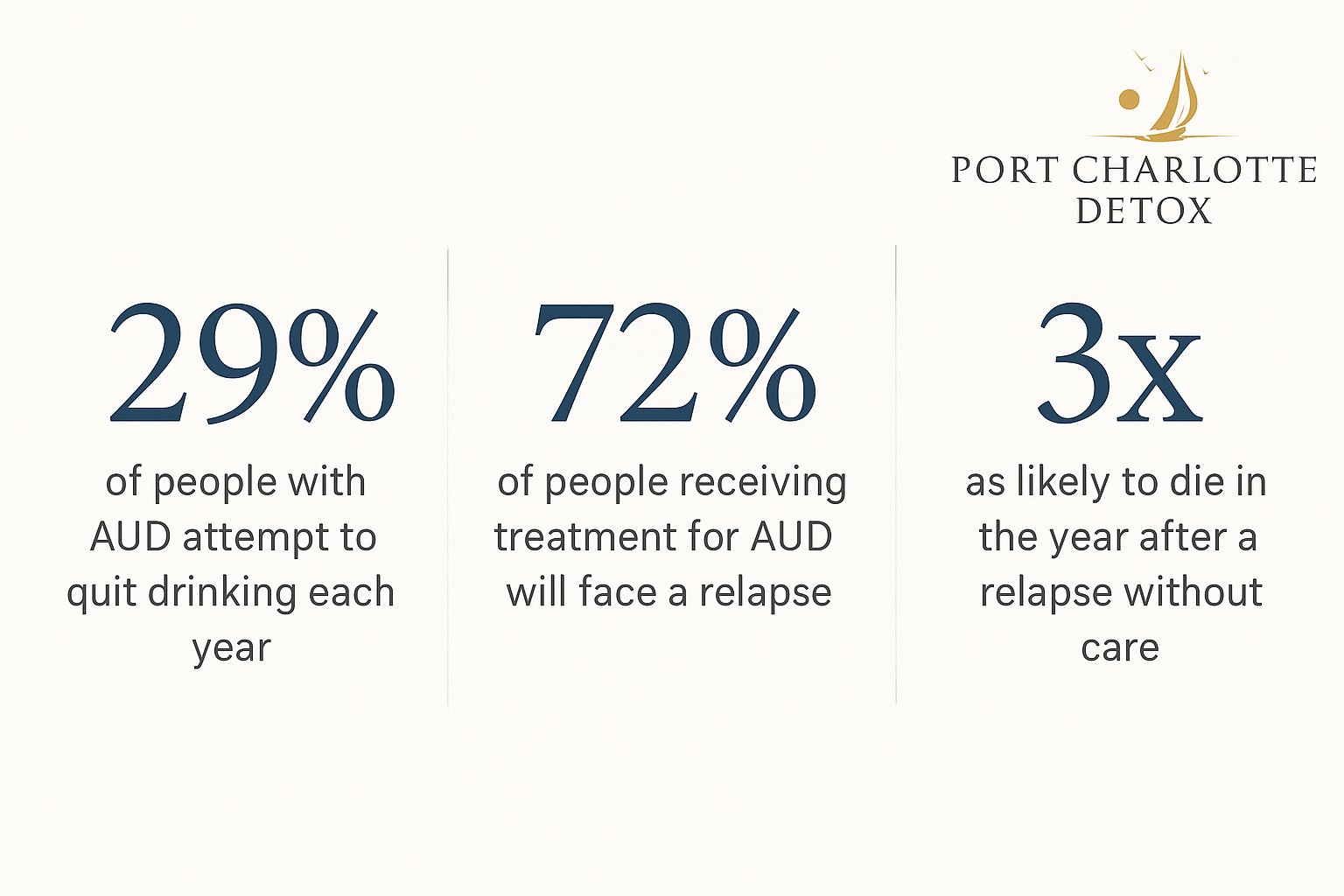When the drinking starts again, it’s not just your child who suffers. You do too.
You might recognize the shift before they say a word—the missed texts, the edge in their voice, the dullness in their eyes. Maybe they finally told you the truth: “I think I need to go back to detox.” Maybe you already knew.
For parents of young adults in the grip of alcohol use, that sentence is both a relief and a heartbreak. If your child is considering an alcohol detox program, you might not know what to say—or how to say it with both love and boundaries.
This guide is here to help. Gently. Honestly. From one heart-weary parent to another.
What should I say when they tell me they want to go back to detox?
Begin with something simple—and true.
“Thank you for telling me. That takes strength. I’m here.”
Even if you’re scared. Even if part of you is angry. The fact that they’re asking for help is a sign that they still want better, even if they don’t know how to get there.
Don’t interrogate. Don’t rehash old fights. There will be time for repair—but not now. Right now, your steady presence can remind them that they’re not alone as they face this next step.
How do I talk about last time without sounding bitter?
You may still be holding the ache of the last attempt—maybe it ended abruptly, or painfully. Maybe you watched them walk out too soon or drift away afterward. That memory matters. But it doesn’t have to define this moment.
If they bring up their own guilt, you can say:
“Last time wasn’t a failure. It was a step. Maybe not the last one, but still a step.”
Reframing the past as part of the process—not a waste—can help reduce their shame and open the door for renewed effort.
Should I hide my fear to stay supportive?
You don’t have to pretend you’re not scared. But be mindful not to center your fear. Your child may already feel like they’ve let you down. Adding the weight of your worry might make them want to withdraw or avoid you.
Instead, try something like:
“I do feel afraid sometimes. But I’d rather be walking through this with you than sitting on the sidelines in silence.”
Your honesty matters—but so does your framing. Make it about connection, not control.
What if they’re not ready to talk?
It’s okay. They might be scared to hope again. They might be wrestling with shame or uncertainty. What they need most is for you to stay present—even quietly.
Say this:
“You don’t have to explain anything right now. I’m just really glad you’re looking at getting support again.”
And then mean it. No strings. No forced conversations. Just your grounded, loving presence.

How involved should I be in the detox planning?
It depends on your child’s age, capacity, and preferences. For many young adults, offering help with logistics (like transportation, insurance, or packing) can be a lifeline—but pushing can backfire.
Ask first:
“Would it help if I looked into a program or handled some of the details?”
If they say yes, facilities like ours in Charlotte County or Fort Myers are available and can often guide both you and your loved one through the admissions process gently.
What actually happens during an alcohol detox program?
Alcohol detox is a medically supervised process that helps people safely stop drinking. At our Port Charlotte Alcohol Detox Program, it typically includes:
- 24/7 medical monitoring to manage withdrawal symptoms
- Medication support, if needed, to reduce discomfort or risk
- Emotional and psychological support during the early days of sobriety
- A short stay, often lasting 3–7 days, before transitioning into further care
The focus is safety, stabilization, and preparing for the next phase of recovery—not pressure or judgment.
Can I talk to them while they’re in detox?
Most programs limit contact during the first few days. It’s not to shut out family—it’s to give the client a calm, controlled environment to stabilize. Once they’re feeling stronger, some programs allow calls or check-ins.
If you’re unsure, you can call the treatment center and ask about their communication policy.
What if I feel angry, disappointed, or hopeless?
You’re allowed to feel all of it. Parents are often expected to be bottomless wells of patience—but you’re human, too. Relapse hurts. So does hope. So does waiting.
The truth is: this might not be the end of the story, but it’s a beginning. Again. And sometimes again is still a win.
A Reminder You Might Need Right Now
Your child choosing detox—even if it’s not their first time—is not a sign of failure. It’s a sign they haven’t given up. And you haven’t either.
Your love is not wasted. Your heartbreak is not invisible. And your presence still matters more than you know.
Frequently Asked Questions About Alcohol Detox
What is an alcohol detox program?
An alcohol detox program provides medical supervision and support while someone stops drinking. It helps manage withdrawal symptoms safely and prepares the person for continued treatment or recovery planning.
Is detox enough to stay sober?
Detox is the first step—not the whole solution. It helps with the physical side of stopping alcohol, but emotional and behavioral support (like counseling or rehab) is often needed after detox for lasting change.
How long does alcohol detox take?
Most detox programs last between 3–7 days, depending on the severity of use, medical history, and individual needs.
Can someone detox from alcohol at home?
In many cases, no. Alcohol withdrawal can be dangerous and even life-threatening. Medically supervised detox is strongly recommended, especially for heavy or long-term drinkers.
How can I support my child after detox?
- Encourage continued care (like outpatient treatment or support groups)
- Avoid judgment or unrealistic expectations
- Stay involved without taking over
- Consider therapy or support for yourself, too
📞 Ready to Take the Next Step?
If your child is considering alcohol detox in Port Charlotte or nearby, we’re here to help—with safety, compassion, and next-step planning that respects your family’s needs. Call (844) 336-2690 or visit our Alcohol Detox Program page to learn more.


